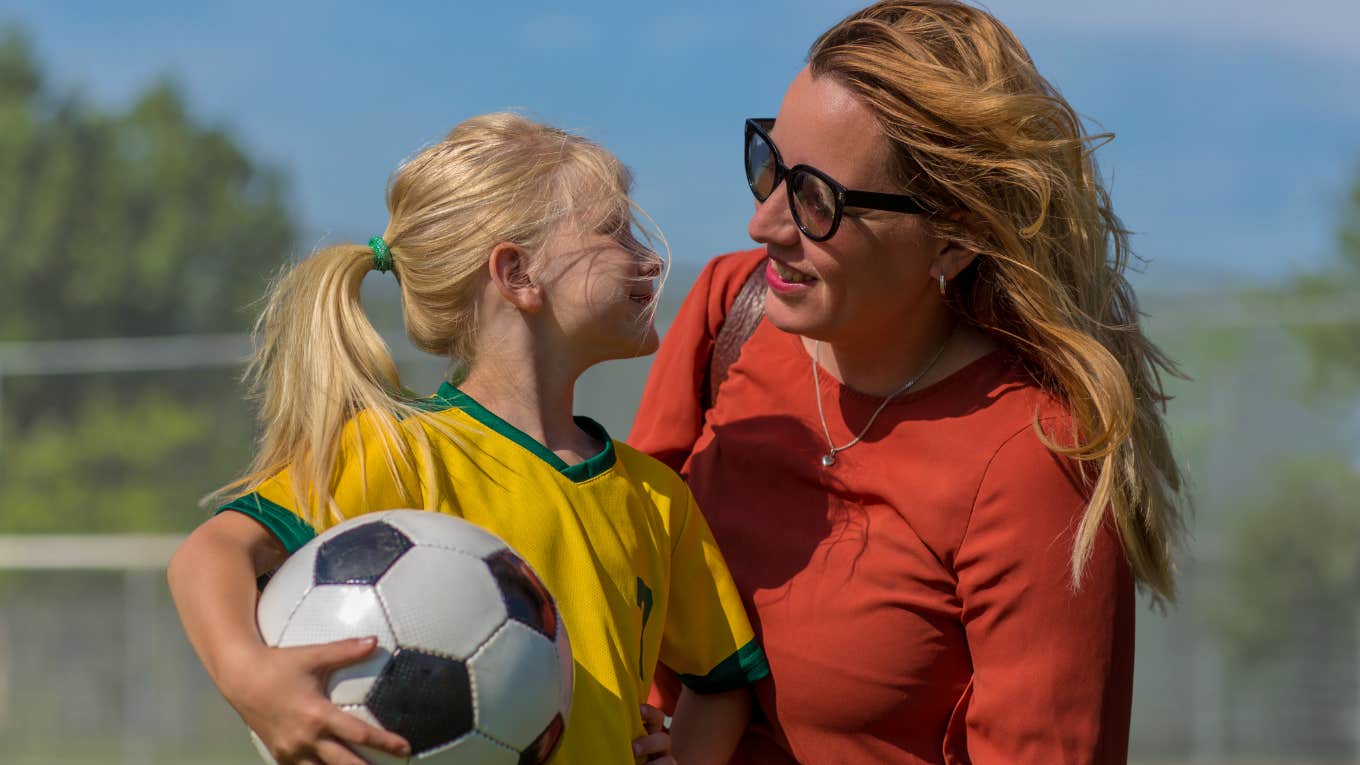Mom Confused By Her Daughter's 'Silent' Soccer Games — 'No One Is Allowed To Talk, Not Even The Coach'
Has gentle parenting taken over kids sports?
 Lorado | CanvaPro
Lorado | CanvaPro Kids' sports were once a way to get out of the house, have fun, and make friends. They have since transformed into an industry of expensive travel teams, overpriced uniforms and gear, and overinvolved parents.
However, soccer mom Holli Grasmeyer isn’t necessarily focused on the merits of modern youth athletics. Instead, she's got her sights set on a new trend she's struggling to wrap her head around — “silent” games.
Instead of allowing parents free reign to coach, yell, and praise their kids from the sidelines, their league has enacted “silent games” to prevent coaches and families from, well... saying anything at all.
A mom was equally concerned and confused when she arrived at her daughter’s ‘silent’ soccer game.
“Nobody is allowed to say anything,” Grasmeyer said in a recent video. “The only thing you’re allowed to do is clap when they score.”
As a new resident in Southern California, this Washington native was concerned that the silent game was part of a new parenting trend that had its roots on the Western Coast.
“While I love [Southern California], I’m just like, ‘What?’” Grasmeyer said. “I’m healthy, so I understand the point… Sometimes, it’s like, ‘Woah guys, these kids are 6,’ but I guess I just mean it’s soft.”
From the coaches to the parents, nobody at the soccer game was allowed to talk.
While it seems wholesome and healthy in theory, Grasmeyer said it was a bit uncomfortable to sit with other parents and coaches without having the freedom to say a word. They also weren’t allowed to cheer for their kids or their teams when they made a goal — “We’re only allowed to clap.”
 FamVeld | CanvaPro
FamVeld | CanvaPro
“It’s a little soft,” Grasmeyer said, subtly pointing to “gentle parenting” accusations brewing in the comments. “How do kids feel encouraged?” one mom wrote. “The only thing motivating me as a kid was my mom yelling from the sidelines.”
Of course, there were also parents who considered it “a perfect solution” to overbearing moms, dads, and coaches who take youth sports too seriously. “Our league does this sometimes,” one commenter wrote, “and it was amazing. The kids really stepped up to the plate and started communicating with each other more.”
It’s possible that compromise truly is the perfect way to manage kids' sports, if perfect is possible for such an evolving industry. At the very least, a few “silent” soccer games and a few “free-for-all” ones would be ideal.
Are silent soccer games truly going to relieve players from the stressful pressures their parents are placing on sports?
From breaking up marriages to straining parent-child relationships to burdening families with tight schedules and unrealistic financial compromises, kids' sports aren’t the lighthearted activity they once were.
The average family pays nearly $1K per child for the average season, which doesn’t include any early specialization training, travel teams, or gear that kids these days are almost required to buy. Because of this financial pressure and large-scale specialization, kids' sports games become a hot topic across the board.
Of course, dedicated sports fans becoming parents are not the only contributors to this overemphasis, stress, and pressure on children’s sports' Several other culprits are involved, including pressures to “fit in” at school and ensuring kids have competitive resumes for college applications.
Even recreational sports, which many older generations played strictly for fun, community, and to make friends, have toxically shifted to favor early sport specialization, and many kids are too “over-scheduled” to consider adding anything else to their plate.
Parents aren’t getting over-dramatic at their games or putting unfair expectations on their kids doing sports to “be the best” for no reason — they’re dedicating their own lives to this, too. Playing a sport in today’s world takes sacrifice, even for a bunch of 5-year-olds on a soccer field.
It’s important that we remain cognizant of these stressors when regulations like “silent games” are unveiled. Yes, they might seem ridiculous to some parents, but for the kids anxiously dreading their ride home or physically ill at the thought of being yelled at mid-game, they’re revolutionary.
Zayda Slabbekoorn is a staff writer with a bachelor’s degree in social relations & policy and gender studies who focuses on psychology, relationships, self-help, and human interest stories.
